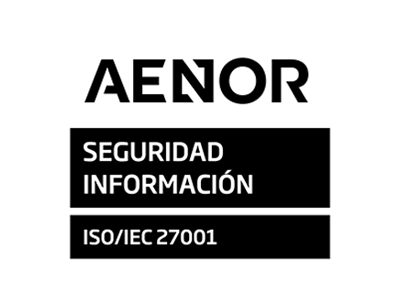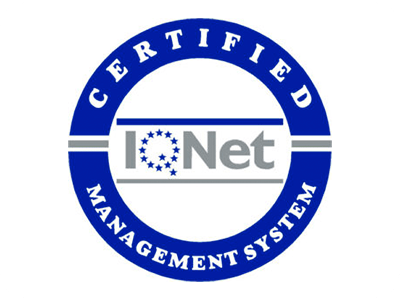Using AI to Overcome the Challenges of Medical Writing
24th March 2024

Struggling with medical writing can be frustrating, but you’re not alone. Complex scientific jargon, tight deadlines, and the need for accuracy can make medical writing daunting. However, with AI, you can overcome these obstacles and produce high-quality, accurate, and concise medical content efficiently. Read on to learn more about the power of AI in medical writing.
Are you struggling with medical writing? Are you often faced with the challenge of translating complex scientific jargon into understandable language for patients and healthcare professionals? Do you find it difficult to meet tight deadlines and maintain accuracy while writing medical content? If you’re nodding your head to these questions, you’re not alone. Medical writing can be a daunting task, but advancements in AI have provided solutions to these challenges. With AI, you can overcome these obstacles and produce high-quality medical content efficiently and accurately. In this post, we’ll explain how to leverage the power of AI to enhance your medical writing skills and produce content that meets the needs of your audience.
The Main Challenges of Medical Writing
Staying up to date with medical knowledge is a constant challenge for healthcare professionals. The field is constantly evolving with new breakthroughs in research and development emerging regularly. Continuously monitoring and staying informed on the latest developments and treatments requires a significant investment of time and energy.
1. The volume of Information
Medical literature is vast and expanding at an unprecedented rate, making it challenging for healthcare professionals to know where to focus their attention.
2. Lost or duplicated work
Given the complex nature of medical writing, a lot of effort and time goes into creating high-quality documents. However, due to glitches or human error, documents can be lost or duplicated, causing significant delays in the writing process.
3. Tight deadlines
Medical writers are often required to work under intense pressure to meet project timelines, which can result in work overload and burnout.
4. Manually working with colleagues and consolidating feedback
Collaboration and feedback are essential aspects of medical writing. However, working with colleagues to consolidate feedback and make revisions manually can be a time-consuming and challenging process.
5. Complications with objective revisions
Medical writing involves a great deal of objective analysis and revision, which can be challenging for writers who may be too close to their work.
6. Complexity of Documents
Medical writing deals with creating complex documents that require technical expertise and attention to detail.
7. Regulatory Changes
Medical writing is subject to constant regulatory changes, making it challenging for medical writers to keep their documents compliant. This means that medical writing professionals need to be aware of the latest regulatory changes to ensure that their documents comply with the guidelines and standards.
8. Technological Advancements
The rapid pace of technological advancements in the medical field is another challenge for medical writers. To address the challenges posed by rapid technological advancements, medical writing professionals must actively seek out opportunities to learn about new technologies and stay informed about how they can be applied to the medical field.
9. Funding
Funding is a significant challenge faced by healthcare organizations, making it difficult for healthcare professionals to attend conferences and workshops, and access new technologies.
How AI is Transforming Medical Writing
The emergence of artificial intelligence has had a significant impact on the field of medical writing. With advancements in technology, AI-powered solutions have been introduced to the medical writing process, providing new and innovative ways to create, edit, and analyze medical content. By automating tedious and time-consuming tasks, such as data analysis and summarization, medical writers can focus on more strategic, analytical, and creative aspects of writing. Furthermore, AI can enhance the accuracy and consistency of medical writing by identifying errors, inconsistencies, and inaccuracies in real-time, as well as identifying patterns and trends that would otherwise be challenging to detect. As a result, AI-powered medical writing has the potential to streamline the process and improve the quality of medical documents.
A few ways in which AI can help include:
- Improved peer collaboration through platforms in which medical writers can share resources and knowledge.
- Online training opportunities
- Bibliographic databases and literature search engines, gather and sort the relevant literature.
- Online community platforms to learn about the latest advances in the field from other professionals.
- Automatic feedback consolidation, to make sure all comments are captured and incorporated into the final document.
- Automatic document revision for errors, inconsistencies, and inaccuracies.
- Workflow streams to help professionals prioritize tasks, such as electronic document management systems and automated reporting systems, to simplify the document creation process.
- Automation to identify and filter the most critical information and present it in a clear and concise manner.
AI Solutions for Managing Medical Knowledge
AI-powered medical writing solutions work by using natural language processing and machine learning algorithms to generate text for a wide range of medical documents. These solutions are trained on vast amounts of data, including medical research articles, clinical trial reports, regulatory documents, and other medical literature. In turn, users can easily manage and access large volumes of information, while saving time and increasing productivity.
The steps in this process are as follows:
Step 1: Read and organize hidden knowledge
The first step involves using natural language processing algorithms to analyze medical documents and extract insights and information that may not be immediately apparent to the reader. This includes identifying key concepts, topics, and relationships between different pieces of information.
Step 2: Measure the similarity between documents
NLP algorithms will then measure the similarity between different documents to identify documents that cover similar topics or share common themes.
Step 3: Automatically summarize documents
This step is utilized for large research articles or clinical trial reports, allowing the user to quickly get a sense of the key findings and conclusions without having to read through the entire document.
Step 4: Organize documents by topic
The solution will then organize documents by topic, making it easier to find information on specific subjects. This can be especially valuable for researchers or medical writers who need to review large volumes of information on a particular topic.
Step 5: Find texts to best responds user queries
Finally, AI-powered medical writing solutions can be designed to respond to user queries, helping to find the most relevant and useful information quickly and efficiently.
Conclusion
The challenges of medical writing are being transformed with the help of AI. With the aid of AI tools, medical writers can save time, reduce errors, improve consistency, and enhance the quality of their work.
It’s also important to note that AI-powered medical writing solutions are designed to work alongside human writers, providing support and augmenting their capabilities. Ultimately, the best results are achieved through a collaborative approach, where human writers can review and refine the text generated by AI solutions to ensure accuracy and quality.
Check out our smart medical writing solution, to help you streamline your workflow, optimize your productivity, and achieve better results.
Ready to see what we can do for you?
In the right hands, artificial intelligence can take human performance to a hitherto unimaginable level. Are you ready for evolution?




